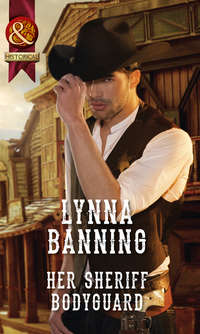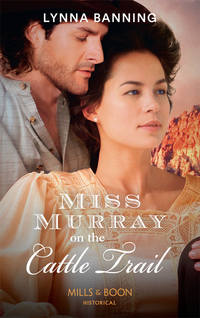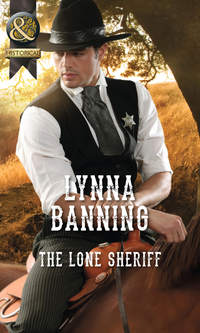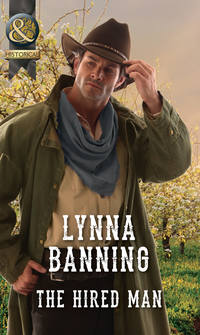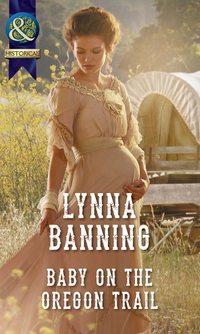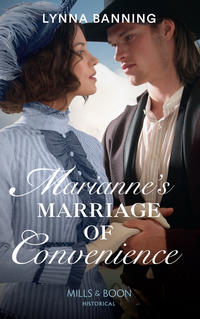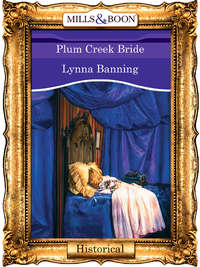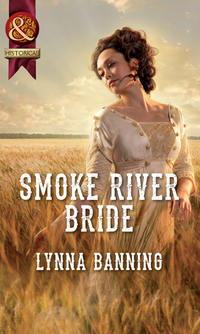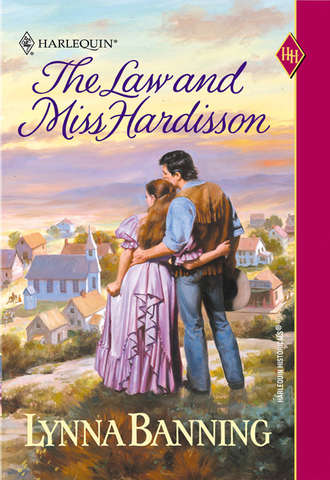
Полная версия
The Law And Miss Hardisson
“I have never been completely on my own before,” she confessed.
“Thought so,” Clayton said, his voice quiet.
Her head came up. “You what? I assure you, Mr. Black, I am a very capable attorney.”
“Thought that, too,” he responded. “Just curious is all.”
“About what, exactly?” Her tone sounded extra prim, even to her.
“About you.”
“Me! Why would you want to know—”
He chuckled. “To find that out, you’re gonna have to win another hand.”
Another hand? Her pulse jumped. Actually, she enjoyed the game—it was the forfeited truths that bothered her. Answering his question made her uneasy, as if she were filled with sand and telling things about herself allowed some of her insides to leak away. She wondered if he felt the same way.
She should end this charade right this minute. Return to her cottage and read or…do something. Anything. Even hang wallpaper.
Her brain told her it was just a card game, a harmless pastime. Her heart told her something else—that it was dangerous. The more he unearthed about her, the more vulnerable she felt.
And that, she realized all at once, was how she had grown up—protecting herself from the real world of loss and pain by keeping everything hidden inside herself.
She felt dazed. Some sort of tension was building between herself and Clayton Black. Not as an opponent, but as a man.
Against her better judgment, Irene gathered up the deck and reshuffled it. She laid out five fresh cards for each of them and watched his capable fingers fold themselves around his hand.
“You know,” he said as she gathered up her own cards, “When I find Fortier, I just might kill him.” The words he heard himself utter sent a cold fist of surprise into his gut. He’d never shot a man in cold blood. Never even considered it.
“I don’t believe so, Mr. Black. For one thing, you’d hang for murder.”
“Tell the truth, sometimes I kinda figure on that. I don’t know how I’ll feel living and remembering what Fortier did to Pa and Jannie. Dangling at the end of a rope would be quick and easy.”
Irene heard his words through a jumble of her own thoughts. The man had given up hope. He would throw his life away because he was desperately lost, alienated from himself. Alone. She knew how he felt, knew the hurt, the helpless fury that came with the loss of someone you loved. They had both come to Crazy Creek on the same quest—to find a reason for living.
A little flutter of pleasurable apprehension laced across her belly. She wondered about him. She wanted to know…all kinds of things. She had to win the next hand!
Which she did. Her three nines beat his pair of jacks.
“Now for my question, Mr. Black.” She paused to phrase it with gentility. “What is the reason for your curiosity regarding my person?”
His gray eyes regarded her with studied detachment. “The truth?”
She nodded. “The truth.”
“Well, now there’s different levels of truth.”
“I want to hear them all,” Irene heard herself say.
“All right, then. On one level, I’d say it’s because you don’t ‘fit’ out here, and things—people—that don’t fit kinda make my nose twitch.”
“It is true, I do not fit. I come from Philadelphia.”
“And on another level I’d say because you’re the best-looking thing in this town and I’ve got a bit of time to admire it and be a tad curious.”
“Oh. Oh!”
“And at bottom, I guess you could say I haven’t had a woman in more than a year and I just wondered about you, the way a man wonders about a woman.”
“Mr. Black!” Irene jumped to her feet.
He lifted his hands from the desk and slowly got to his feet. “Miss Hardisson,” he echoed. “I warned you about this game. Truth is what we think we want to hear. Most times the real truth is unwelcome or shocking or—like right now—damned impolite. My apologies for offending you.”
Irene hesitated. She wasn’t offended, not deep inside. She was thrilled right down to her toes! He was a man—all man, from his broad shoulders to his tooled leather boots—and he had those kinds of thoughts about her? Something turned over inside her chest.
“I accept your apology, Mr. Black.” Her sentence came out a bit breathily, and she cringed in the silence. She couldn’t let him see how pleased she was by his admission. No man had ever uttered such stirring words to her! Back in Philadelphia, young men spoke ridiculously flowery phrases. But Miss Hardisson, I have long admired you from afar just didn’t measure up to this Western man’s blunt talk.
She loved it!
Heavens to Betsy, what was wrong with her?
Clayton stepped around the desk and took her elbow. “That’s probably enough poker for one evening. I’ll escort you home.”
“Mr. Black, you needn’t—”
His fingers tightened on her arm. “Clay,” he said. “And I do need.”
He blew out the lamp and walked her out the door.
At the bottom of her porch steps he released her elbow. “Good night, Miss Hardisson.”
She could not utter one single word. Everything about him pulled at her senses, his steady gray eyes, the squint lines etched at the corners, the dark, silky-looking hair that brushed his shoulders. She felt slightly dizzy in his presence.
She unlocked her door and on unsteady legs found her way upstairs to her bedroom. For an hour she sat staring out the open window, breathing in the warm, honeysuckle-scented air and feeling more lonely than ever before in her life.
Clayton. An unusual name. She’d ask him about it the next time they played poker.
Irene wakened when the sun was high and hot and the cackle of Mr. Gerstein’s chickens floated from the neighboring yard, punctuated by the snip-snip of his wife’s flower clippers. She lay still, listening.
A horse clopped by, pulling a rattletrap wagon. In its wake rose the scent of warm dust. Lulled by the sounds and smells, she offered up a short prayer of thanks to God for bringing her safely across the plains to this peaceful place.
Children’s voices echoed from the path winding past her house to Schoolhouse Hill. When the bell began to clang, the voices gradually faded into silence.
Irene sat up. Heavens, it was nine o’clock! She had Mrs. Madsen’s letter to answer and Arlen Svenson’s will to draft! Hurriedly she splashed water from the china basin over her face and neck and dressed in a royal-blue sateen work skirt and high-necked white shirtwaist trimmed with lace. Arranging her hair in a loose bun on top of her head, she secured her straw hat in place with a pearl-tipped hat pin and descended the stairs.
Except for her footsteps on the wooden staircase, the house was quiet. It still smelled faintly of paint and wallpaper paste, but even in its unfurnished state, it felt like home. Her home.
Her furniture—inherited along with the Philadelphia house where she and her father had lived until death took him—would arrive in early August, along with Nora. At the moment she didn’t miss either the housekeeper or her furniture.
She had selected only the most cherished pieces to ship west—the chiffonier from her mother’s bedroom, her father’s polished walnut rolltop desk, the embossed silver umbrella stand, Great-Aunt Emily’s gold-bordered Haviland china, the Oriental carpets in her father’s study, and the carved four-poster bed he slept in. The rest she had directed Nora to sell. She could purchase new settees and tables and chairs in Portland, seventy miles away.
In the meantime, she would manage. She much preferred a bedroll on her very own hardwood floor to Mrs. Bauer’s boardinghouse across the street.
True, she was lonely, but not for her housekeeper. She still grieved over her father’s loss, but she vowed she would not allow thoughts of missing him to spoil this brand-new, beautifully clear day.
In fact, she felt so full of energy she thought she might pop. First, breakfast at the Maybud Hotel dining room, and then…she rubbed her hands together relishing the prospect. Then she would finish up her letters and wallpaper the front parlor!
She could hardly believe she was here in this lovely little town, settled in a pretty white cottage on Park Street. She tried to suppress a smile, but it grew and grew, no matter what.
A whole month without Nora! She did miss the housekeeper, but now that she was here, on her own, she reveled in her newfound freedom. She could eat when she wished, give her own hair the required hundred brush strokes every night, brew her own afternoon tea, and even make the scones she was so fond of—once her stove arrived.
She could get along without the housekeeper for a month, surely. Besides, Nora had plenty to occupy her what with closing out a three-story house crammed with the belongings of four generations of Hardissons and Pennfields. Nora would have plenty of time, now that her father was gone.
She seized her parasol from the oversize vase in the corner and swung open the front door. Perhaps she would have enough of the flower-sprigged wallpaper left over to—
“Mornin’, Miss Hardisson,” a rich voice drawled. Clayton Black rose from the top porch step and tipped his hat.
“Mr. Black! What are you doing here at this hour?”
“Waitin’ for you. Information. And breakfast, in that order.”
“Breakfast!” Her stomach rumbled annoyingly, as if to reinforce the thought. “You’ll get no breakfast here, I assure you.”
“Thought not. You said you eat at the hotel.”
Irene blinked. “And so?”
“So, I’ve got a notion to accompany you, if you don’t mind.”
Irene pointed the tip of her parasol at the sky and released the catch. “As a matter of fact, I do mind.”
The mere sight of the man on her front porch chased away her appetite.
The ruffled silk dome opened in an arc over her head, and for one insane moment she gazed up at the metal ribs and wondered if what she had just uttered was true. The thought of Clayton Black looking at her across a table made her toes tingle. What was it about the man she found so unnerving?
She decided she didn’t want to know. “I prefer to eat alone. I think about my schedule for the day, and often plan—”
“Schedule!”
“—tomorrow’s schedule as well. Today being Friday, Saturday, too, will be allocated to productive activity.”
“Productive activ—? Good gravy!”
She swept on, undeterred by his interruption. “And of course Sunday is the Lord’s Day, and I shall rest.”
“I should damn well think so. Don’t you ever take any time for fun?”
“Fun?” She gave him a blank look. “You mean as in frivolity? The answer is no. My profession is my satisfaction in life. ‘Fun,’ as you put it, is for—”
“Normal people,” Clayton interjected. “Ma’am, you’ll forgive me for sayin’ so, but you’re in sorry shape.” He advanced a step toward her and captured the hand holding the parasol. “Now just come along quiet-like, and we’ll work this all out at breakfast. I’m half-starved. Another thirty minutes on your porch and I’d ’a taken a bite outta my hat, so hurry it up.”
Irene stared up at him. “I’m not going anywhere with you,” she announced. She planted her black laced-up walking shoes flat on the porch planking.
“Sure y’are.” Clayton ran his forefinger over the hand clutching the parasol. “I notice you like to make wagers, Miss Hardisson. I’m bettin’ you’ll follow me when I tell you what I found out this morning.” He stepped back.
Irene took a hesitant step forward. “What?” she demanded.
“Good girl,” Clayton murmured. He stepped back again.
She followed him. “What did you find out?”
He did not reply. Instead, he slid his left arm under hers and drew her forward, down the porch steps and along Park Street.
Nelda Gerstein lifted her wicker flower basket in greeting as they passed. “Lovely morning,” she sang.
Clayton nodded at the sweet-faced older woman and touched his hat brim. “That it is, ma’am.”
“A bit hot for July, but then my Thomas always says…” Her voice receded as they moved down the board sidewalk.
“Mr. Black,” Irene huffed as he hurried her along. “Just what do you think you’re doing?”
“I’m takin’ you to breakfast, Miss Hardisson.” His fingers wrapped over hers on the parasol handle as he guided her across the street toward the hotel. Irene found it difficult to breathe normally with his hard, warm hand on hers.
“And then—” he paused while they ascended the three wide wooden steps at the hotel entrance “—we’re goin’ on a picnic.”
“Picnic! Right after breakfast? What on earth for?”
“Reconnaissance,” he said quietly. “You can ride, can’t you?”
“Most certainly I can ride.” She closed the parasol with a snap. “I was named equestrienne of the—”
“Good.” He propelled her into the dining room, selected a table by the front window and pulled back her chair. “We’ll have ham and eggs, over easy,” he said to the waitress. “And half-a-dozen cold chicken sandwiches. For lunch,” he added.
Irene bristled. “Now just one minute.”
“Certainly, sir,” the waitress breathed. She stood stock-still for a moment, staring at Irene, then she bobbed an awkward curtsy.
Clayton chuckled.
“I prefer to order my own meals,” Irene hissed across the table. She turned to the wide-eyed girl. “I would like ham and two eggs, over easy.”
He laughed out loud.
“And some tea, if you please.” She worked to keep her voice even, but in spite of her efforts it rose alarmingly. The man was maddening. Over-bearing. He acted as if he owned the hotel, the town—even her! Well, she’d soon set him straight on that score.
But you like it a little, don’t you? a voice nagged. Perhaps even more than a little?
She most certainly did not!
Liar.
Clayton studied her face. “You look kinda funny, Miss Hardisson. Something wrong?”
Everything was wrong, she thought in exasperation. Except for one thing, the voice countered. Him. You feel alive when he’s near.
“Nothing is wrong,” she lied. “I am not accustomed to frittering away a perfectly good workday on picnics and such nonsense.”
He nodded. “That figures.”
“Consequently, I have no intention of accompanying you anywhere, much less on horseback.” She flipped the white linen napkin open and settled it across her lap.
“I’ll hire a buggy instead.” His voice was calm, without the slightest inflection. His nonchalance made Irene clench her hands.
“No buggy,” she enunciated clearly. “No horse. And no picnic.” She dumped two heaping spoonfuls of sugar into her tea before she realized what she was doing.
Clayton signaled the waitress. “Better make it a dozen sandwiches. The lady will have quite an appetite.”
The girl giggled. “Certainly, sir.”
Irene gritted her teeth. “I will have no appetite whatsoever.”
He tilted his chair back and gazed at her. “I think you will.” Amusement and something else colored his voice, along with an undercurrent of steely determination that made her apprehensive.
“For one thing, with no buggy and no horse, that leaves us on foot.” He tipped his chair forward. “I know from experience that walkin’ works up a powerful hunger.”
“Never!”
“Right after breakfast,” he contradicted.
Irene squirmed on the straight-backed dining chair. “What makes you think I would even consider—”
“Because, Miss Hardisson, you still haven’t told me what I need to know, and I’m gettin’ itchy. Now I don’t hold with using force—” he looked deep into her eyes “—but the way I figure it, you owe me some information, so I’m gonna make you a proposition.”
Her eyes flashed in alarm. “Mr. Black!” Her tone made him think of a mid-January Texas frost. She’d mistaken his meaning.
Clayton swallowed to wet his throat. “You ever see a chess match?”
“Why no, but—”
“Well then, here’s the bargain. These two foreign fellas, Russians, I think, are playing chess over in Parker’s Meadow. I’ll take you to watch the match, and you’ll give me what I’m after.” He gulped. Balls of fire, what was wrong with his tongue?
She looked at him as if his ears were screwed on backward. For a long, long minute, she didn’t say a word. He tried to read her thoughts, but she met his gaze with carefully expressionless eyes. She’d make a good poker player. He couldn’t tell jack squat about what she was thinking.
He knew it was a long shot. She might have no interest in the game, much less stamina for an entire match, which could extend over the better part of a day. But she liked games, didn’t she? She liked challenges. He’d wager she didn’t know a thing about chess, but maybe she’d last long enough to let down her guard and tell him what he wanted to know about Brance Fortier. He’d been all over town this morning, and nobody even admitted seeing the outlaw leave. Fortier’d probably threatened them.
Two identical platters of food banged down between them. “Would there be anything else, sir?”
Clayton kept his eyes locked with Irene’s. “Yeah. Add a canteen of coffee to those sandwiches, will you?”
“Certainly, sir.”
He reached his good arm across the table and covered Irene’s small, manicured hand. “Well?”
The starch drained out of her. He’d set it up just right, he thought in satisfaction. She’d taken the bait. She’d be bored and talkative within an hour, and he was an expert at ferreting out information.
She looked him in the eye. “May I have your word of honor you will not attempt to compromise me, Mr. Black?”
“My word of honor.” No risk there, he thought. She was his link to Fortier; he’d treat her with velvet gloves. His gut told him the outlaw was long gone, and he ached to be after him. But he figured he could spare three more hours, tops, if it would save him some time later on. Otherwise, he’d have to try to pick up a cold trail, and that was slow and tedious. This way, he could save a day, maybe two.
Besides, he liked the company of this prickly lady lawyer with an unexpected aptitude for five-card draw. At the moment, gazing into her upturned face, watching her rosy lips open to admit a dainty forkful of ham, he didn’t know which he wanted more—breakfast or Irene Hardisson.
Watch it, mi amigo. In your line of work, a woman like this is a dead end.
He knew that, all right. Had known it for years.
Being a Ranger’s wife is no kinda life for a woman, his father had said. Every single day, she’s just one rifle bullet away from widowhood.
Part of him acknowledged the raw truth of the words. Another part of him was so desperately alone he didn’t care about the risk.
Forget it, you dumb son of a gun. You know what you have to do. And you know the price.
God’s little scorpions, sometimes he wished that sensible part of him would just shut the hell up.
“It’s a package,” Irene said at last.
Clayton started. “A deal,” he corrected. Suddenly he wished he’d never proposed the idea. The thought of Irene and himself out in a grassy meadow somewhere made him feel hot all over. He’d sure like to do something other than watch a chess match.
He had to chuckle at that. Truth was, in spite of what Pa always said, he’d got this particular green-eyed woman kinda stuck in his throat.
Chapter Five
On the short buggy ride to Parker’s Meadow—straight out of town on the Portland road the liveryman had instructed, then sharp right at the double oak trees—Clayton watched Irene fidget on the black leather seat beside him. Plain as buttered pancakes she was itching to do something, but he’d lay odds it wasn’t rolling along in a buggy so close to him her skirt brushed his thigh.
The instant they crested the rise and the meadow spread before them like a rich green carpet, she settled down. Far across the swath of long grass two men dressed in black sat motionless at a makeshift table, its legs hidden in the lush grass.
The chess players. Clayton shot a glance at Irene and frowned. Her gaze was riveted on the two figures hunched over the table. Her eyes sparkled. “Can you go any faster?”
Faster? He didn’t expect her to be this interested. Then again, she wasn’t like most women he’d known.
Which, he acknowledged, had been few and far between. He let out a long breath. All his life he’d taken pains to mask his Cherokee blood with white man’s trappings, as his father had. The only concession he made to his Indian heritage was refusing to cut his hair but once each year. Out here in untamed Oregon, he didn’t look too different from anybody else, but he wondered what Irene would say if she knew about his Cherokee side, how he’d been shunned in both worlds, Indian and white. How uncomfortable he felt in towns like this, or with a woman like her.
As they drew near, Irene leaned forward, her hands clasped in her lap. Clayton pulled the rig into an area of flattened grass and set the brake. A few saddle horses raised their heads, then returned to their desultory cropping of the grass at their feet.
It was a perfect afternoon, Clayton noted. He considered unhitching the mare, then thought better of it. Irene would be bored and hungry in an hour—two at the most. When she grew tired of watching the game she’d want to head back to town—or, better still, lounge on the meadow and have a picnic with him. And then she’d start talking about Fortier.
He could hardly wait. He turned to speak to her, but she was gone. “Now where the hell…”
A flash of blue sateen drew his eyes to the small table set under a spreading oak. Two motionless players in long black frock coats and soft black caps atop their gray heads sat like two large blackbirds, bent over the chessboard between them. Irene positioned herself to one side, folded her arms across her waist and watched.
Clayton waited for her to move or shift position, but she remained still as a blue-clad statue. Purposefully he circled the small gathering of onlookers, watching Irene, who in turn studied the chess pieces with as much intensity as the two rail-thin players. Russians, someone at the hotel had said. Homesteading adjacent plots of land in Crazy Creek Valley, the two met every Friday to play chess.
Irene watched the game with unwavering intensity, moving only once to shoo away a bumblebee. The sun climbed high overhead, slipped off center and began to descend.
Clayton began to pace. He hadn’t anticipated her complete absorption in the proceedings; her look of rapt fascination made him just a tad uneasy. He craved some talk about events concerning Brance Fortier’s disappearance, but at the moment she was plainly interested only in the chess match.
He walked about the meadow in ever-widening circles, skirting the fringe of fir trees where afternoon shadows began to lengthen, frustration building inside him. On his next loop near the chess table, he studied Irene for signs of flagging interest. She never even looked up at him.
With a groan, Clayton tramped back to the buggy, loosened the harness and removed the bit from the horse’s mouth. No sense keeping the rig at the ready—Irene was lost in the game.
Another hour crept by and she didn’t move an inch. Maybe he’d better give up on the idea of a quiet interrogation under the guise of polite picnic conversation.
Or maybe he had a better idea. Noiselessly he edged close to Irene, leaned forward and breathed a single word into her ear. “Lunch?”
“Oh, yes,” she whispered without moving. Her gaze pinned on the game before her, she stuck out her hand. “A sandwich, if you please.”
Clayton plopped a small towel-wrapped bundle into her outstretched palm and watched her unwrap it. She nibbled at the slice of chicken poking out between the slices of bread. While he watched her take occasional dainty bites, her attention glued to the chessboard, he devoured four sandwiches and washed them down with a swig of lukewarm coffee from a glass jar. He wished like anything it was whiskey. This whole charade was getting his dander up.
Irene Hardisson had said barely three words in as many hours. Only a scattering of pieces remained on the board, but neither of the solemn-face men had made a move in the past thirty minutes. The game was at a standstill.


